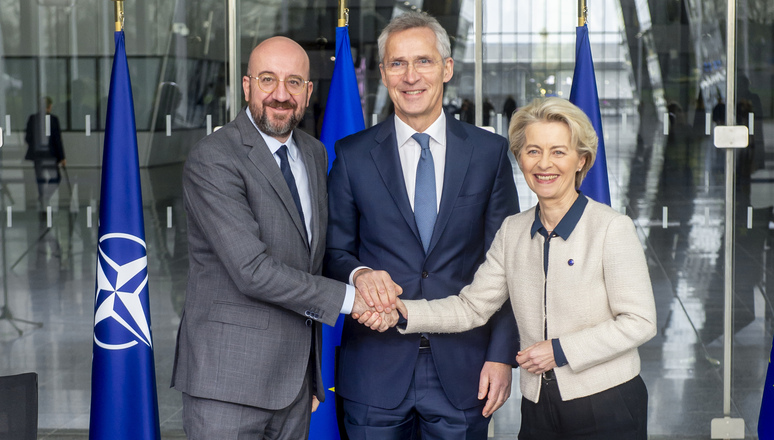Hungary’s idea of holding a referendum on Ukraine’s EU accession appears to be an attempt to divert its voters’ attention from domestic economic issues, stated Yevheniia Kravchuk, Deputy Chair of the Ukrainian Parliament’s Committee on Humanitarian and Information Policy, UkrInform reports.
Meanwhile, Polish Minister for EU Affairs Adam Szłapka has stated that Poland’s EU Council representatives are working to persuade Hungary not to block the opening of the first negotiation cluster on Ukraine’s EU membership.
“During Poland’s presidency, support for Ukraine continues uninterrupted, with successive aid tranches being delivered. We are also striving to make progress on enlargement matters. We are constantly trying to convince our partners—primarily our Hungarian partners—that the first negotiation cluster can be opened during Poland’s presidency,” Szłapka said.
Clusters are thematic groupings of negotiation chapters that organize the EU accession process into six broad areas: fundamentals (rule of law, judiciary, human rights), internal market, competitiveness and inclusive growth, resources, agriculture, cohesion, and external relations.
“A decision on opening the clusters does not require a referendum. Moreover, the decision to start negotiations is essentially the political agreement that all 27 member states have already approved,” Kravchuk explained.
Currently, a technical process is underway—screenings are being conducted, and the European Commission is working with the candidate country to assess its readiness across various sections.
“Politically, the EU has already made its decision. The latest statements from the European Commission and the President of the European Council frame the issue not as ‘if’ but ‘when’ Ukraine will become a member of the European Union,” she said.
Kravchuk noted that the potential idea of a Hungarian referendum on Ukraine’s EU accession has a manipulative aspect.
“This seems to be part of a domestic political agenda aimed at distracting voters from Hungary’s own economic problems, such as rising prices and inflation. Notably, if Hungary were outside the European Union, it would lose a lot, as it is a recipient of EU funds and has strong economic ties, for example, with Germany,” Kravchuk remarked.
The Ukrainian deputy emphasized that in addition to Brussels and Poland, which currently holds the EU Council presidency, countries with economic influence over Hungary, particularly Germany, should also engage with Budapest.
Read more:
- Ukraine’s mad scientists marry Soviet R-73 with Western missiles in hybrid air defense system
- Ukraine’s FrankenBuk air defense system combines Soviet Buk-M1 with Western Sea Sparrow missiles
- Militarnyi: Ukrainian missiles to be integrated into NASAMS air defense systems
- Ukraine’s NASAMS air defense systems destroy 900 Russian aerial targets with 94% success rate






